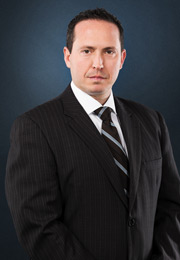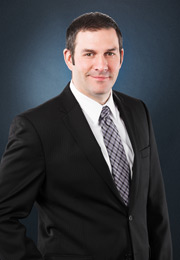Almost every significant bankruptcy case eventually involves preference demands and litigation. Around this abundance of litigation developed a significant body of jurisprudence, to which Judge Sean Lane of the Southern District of New York Bankruptcy Court recently added in clarifying the ordinary course of business preference defense.
In Davis v. Clarklift-West, Inc,1 the Plaintiff — Litigation Trustee for the Quebecor World Litigation Trust (the Trustee) — sought summary judgment that certain transfers by the Debtors to the Defendant were preferences under § 547(b) of the Bankruptcy Code. The parties did not dispute that the transfers met the elements of § 547(b). The dispute concerned the Defendant’s assertion of the ordinary course of business defense under § 547(c)(2)(A).2
The Trustee analyzed 533 transfers made during a two-year historic baseline period ending before the preference period, to 82 transfers made during the preference period. The results were damning — in the historic period, 83 percent of payments were made between 45 and 65 days past the invoice date, as opposed to 6 percent during the preference period (in the preference period, 70 percent of the payments were between 76 and 85 days after the invoice, and 99.97 percent of the payments were more than 60 days after, leaving effectively no payments transferred on or around the historic 50-day mean). The weighted average from invoice to payment rose about 55 percent, from 50.29 days in the historic period to 77.79 days in the preference period. The Court accepted and the Defendant did not contest these figures or methodology.3 Rather, the Defendant relied primarily on two cases to support its defense.
First, the Defendant cited a California bankruptcy case from 20074 where a variance of 33 percent to 50 percent in timeliness of payments did not preclude an ordinary course of business defense. Judge Lane distinguished the case due to its unique facts, including the potential of invoice or payment delays due to the intervention of holiday periods.
Second, the Defendant cited the Southern District of New York’s Pameco5 bankruptcy decision, which outlined factors courts should consider to determine whether transfers were in the ordinary course: (1) the parties’ prior course of dealings; (2) the payment amounts; (3) the timing of payments; (4) the payment circumstances; (5) the presence of unusual debt collection practices; and (6) whether the means of payment had changed. The Defendant argued that five of these six factors supported the ordinary course defense, while only the timing of the payments did not.
The Court reinforced the standard in the Southern District of New York that late payments are presumed to be outside the ordinary course. Simply adding-up the Pameco factors was insufficient to rebut that presumption.6 Only a showing that late payments were the parties’ standard course of dealing would suffice. Judge Lane noted that, although courts consider other factors, a significant delay in payment during the preference period will not necessarily be overcome by the existence of other favorable factors. The Court granted summary judgment in favor of the Trustee because the Defendant did not establish that the extent of the late payments was in the parties’ standard course of dealing.7 The Court also allowed pre-judgment interest under §§ 547 and 550(a).
The message to creditors is clear — when constructing an ordinary course of business defense under § 547(c)(2)(A), determine your most favorable analysis to include the highest amount of payments within the ordinary course defense. Then, determine how much exposure you have and work with the trustee to arrive at a settlement south of the exposure amount. Based on the Court’s ruling, it appears that unless you can decrease the exposure period, the Pameco factors will not save you and contesting the preference could be a losing battle, resulting in possible loss of the full exposure amount, pre-judgment interest, and costs.8
Footnotes
1. Eugene I. Davis, as Litigation Trustee for the Quebecor World Litigation Trust v. Clarklift-West, Inc. dba Clarklift Team Power (In re Quebecor World (USA), Inc. et al.), Bankr. S.D.N.Y. Adv. Proc. No. 10-1568(SHL) (Order Dated October 14, 2014).
2. Section 547(c)(2)(A) provides the so-called “subjective” test, which looks to the history of the transactions between the parties. The “objective” ordinary course of business test, provided in 547(c)(2)(B), looks at whether the transfers were made according to ordinary business terms, and is more costly to prove, rendering it prohibitively expensive in many instances.
3. It is unclear whether a different methodology would have yielded a more favorable result for the Defendant.
4. In re Central Valley Processing, Inc., 360 B.R. 676 (Bankr. E.D. Cal. 2007).
5. Buchwald Capital Advisors LLC v. Metl-Span I., Ltd. (In re Pameco), 356 B.R. 327, 340 (Bankr. S.D.N.Y. 2006).
6. Even the Pameco court acknowledged that substantially delayed payments are outside the ordinary course.
7. The Court also considered the Defendant’s inadequate application of the Pameco factors, and other evidence including a letter from the Debtors to their suppliers urging them to maintain a business relationship. These factors did not appear to weigh heavily in the decision.
8. The views expressed in this article do not necessarily represent the views of Arent Fox LLP, its attorneys, or its clients.




